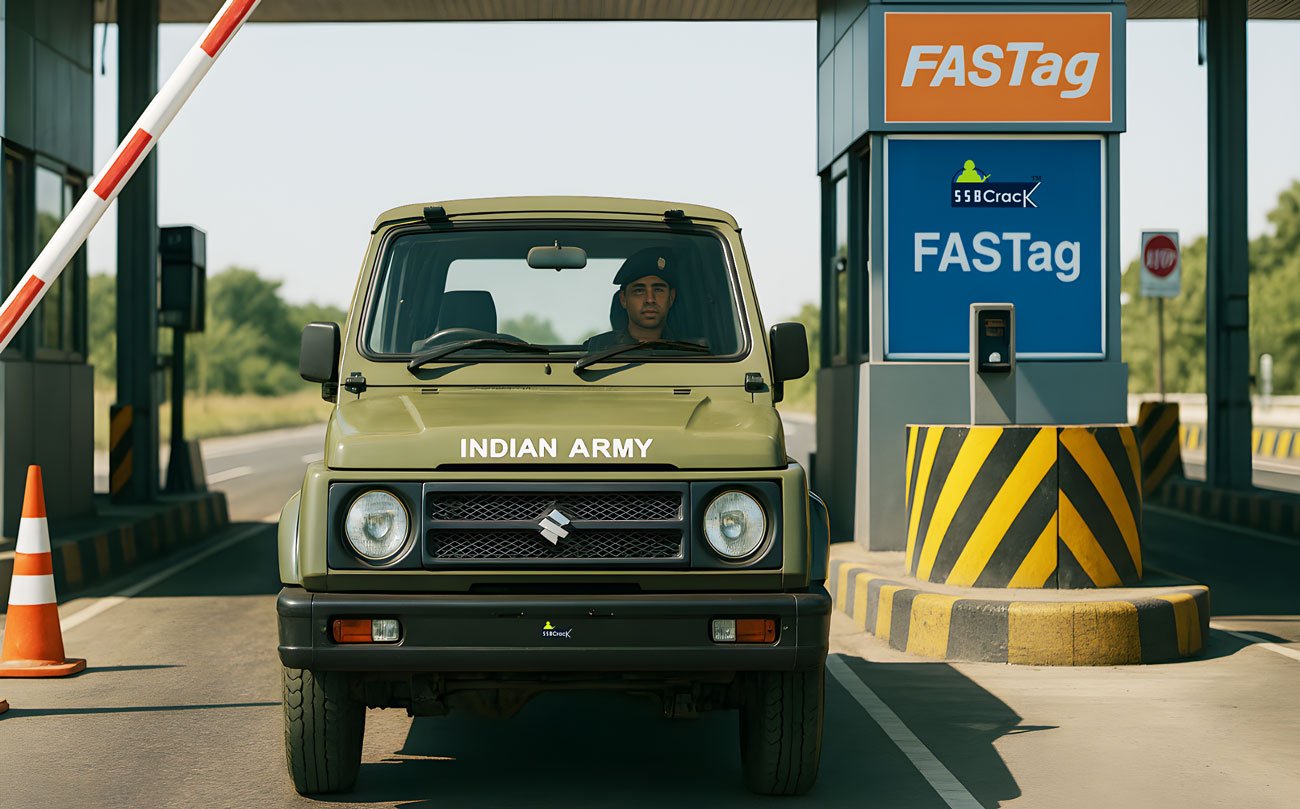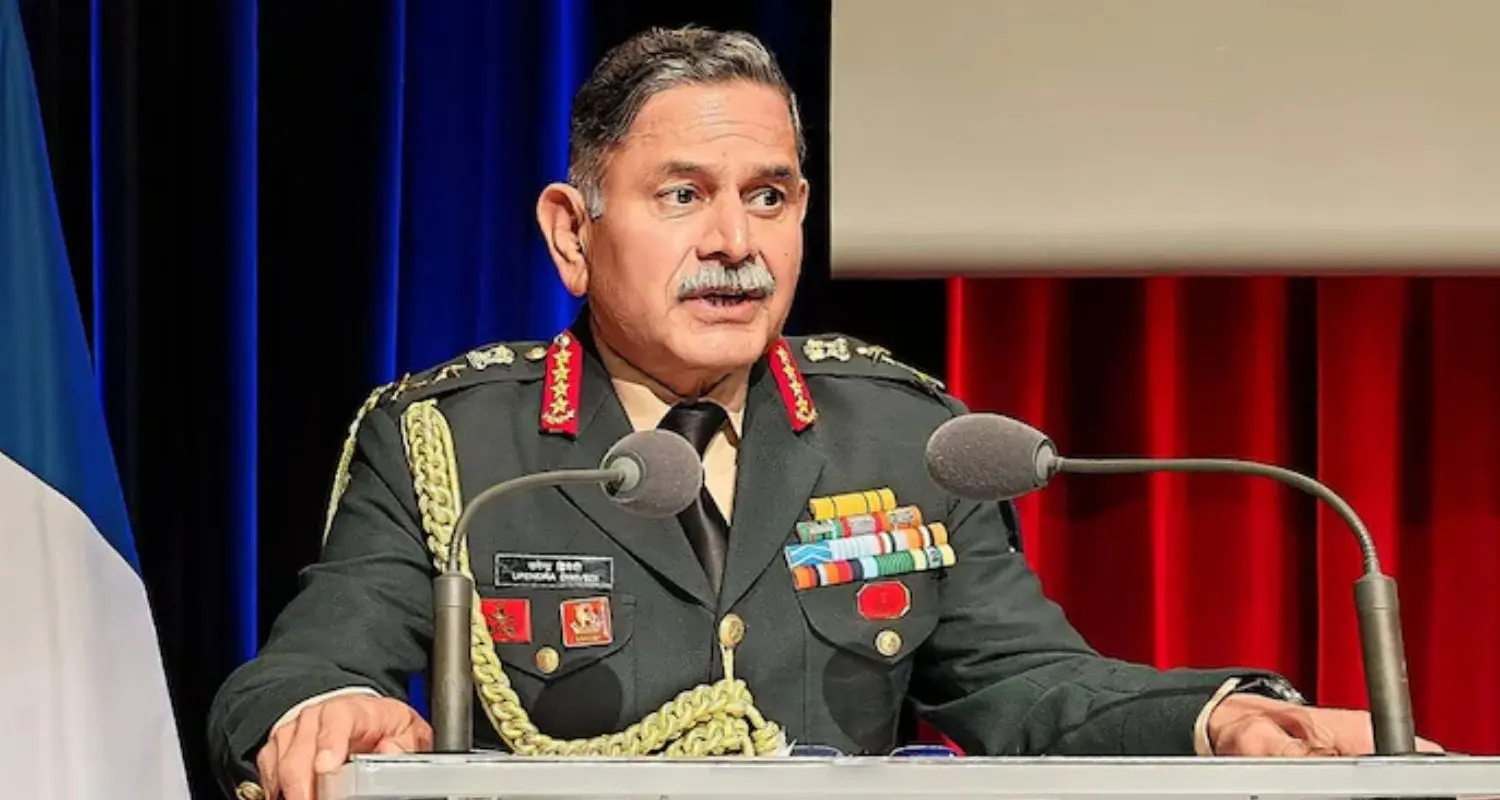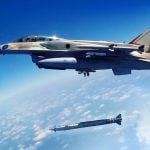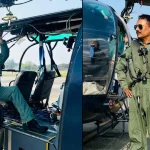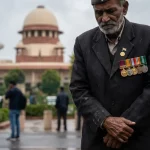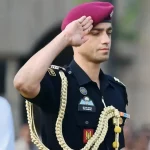There’s a lot of confusion (and viral half-truths) about whether an Indian Army soldier can pass every toll plaza for free. The reality: exemptions exist, but they’re specific and conditional. They come from three places:
- The Indian Tolls (Army & Air Force) Act, 1901 — lays down who/what can be toll-free and in what circumstances.
- The Indian Tolls (Army & Air Force) Rules, 1942 — explain when a pass is needed and when it isn’t (e.g., in uniform on duty).
- National Highways Fee (Determination of Rates and Collection) Rules, 2008 — the key Rule 11 exemption list used at NH tolls, including vehicles used for official purposes by MoD and armed forces in uniform (again, official purposes).
MoRTH’s official FAQs further clarify hot-button cases (ex-servicemen, defence civilians, private cars, etc.).
Key Takeaways (Quick Read)
- Not a blanket free pass. An Indian Army soldier is exempt at tolls only when the travel falls under the legal exemptions (mostly official duty scenarios).
- Uniform ≠ automatic exemption. “Armed forces in uniform” in Rule 11 sits under ‘used for official purposes’—i.e., uniformed and on official duty, not a private trip.
- Personal/off-duty travel: Pay the toll (no exemption).
- Ex-servicemen & defence civilians: No exemption.
- Pass/documentation: The 1942 Rules require a pass unless covered by specific “no-pass” cases (e.g., in uniform on duty). Officers on duty but not in uniform may give a written declaration.
What the Law Says (Plain English)
The 1901 Act: Who/What Is Toll-Free?
Section 3 exempts:
- Officers, soldiers, airmen of the regular forces, certain reserve/territorial categories, authorised followers, and families when accompanying troops on duty/on the march.
- Government carriages/horses employed in military/air-force service while conveying troops/stores, or returning empty.
- The exemption applies to roads, bridges, ferries, and landing places.
It also sets a (now archaic) penalty for wrongly collecting toll in exempt cases (fine up to ₹50).
The 1942 Rules: Pass or No Pass?
- Rule 2: To claim exemption under the 1901 Act, you generally present a pass if asked.
- Rule 3 (No pass required in certain cases):
- In uniform on duty/on the march (Regular/Irregular forces, TA/NCC on duty) — no pass needed.
- Officers on duty, not in uniform: may give a written statement (name, rank, and that they’re on duty).
- Families/authorised followers accompanying troops on duty/on the march, and specified vehicles/animals supporting such movement.
NH Fee Rules, 2008 (Rule 11): What Toll Plazas Use
At national highway plazas, Rule 11 governs exemptions. Relevant parts:
- (b)(i): Vehicles used for official purposes by the Ministry of Defence, including those eligible under the 1901 Act (extended to Navy).
- (b)(ii): Central and State armed forces in uniform, including paramilitary and police, used for official purposes.
- Plus other exempt categories (dignitaries, ambulances, funeral vans, etc.).
MoRTH FAQs put it bluntly:
- “Serving army personnel using a private vehicle… Exemption shall be extended only when the vehicle is used for official purposes.”
- Ex-servicemen? No. Defence civilians? No.
When Is an Indian Army Soldier Toll-Free? (Scenarios)
| Scenario | Toll Exempt? | Why / Notes |
|---|---|---|
| Soldier on official duty in a government vehicle | Yes | Covered by Rule 11(b)(i); also aligns with 1901 Act scope. |
| Soldier on official duty in a private vehicle | Yes, if the vehicle is used for official purposes and you can show it | MoRTH FAQ Q16; official-purpose condition applies. Carry duty order/authorization. |
| Soldier in uniform but off duty (personal trip) | No | Being in uniform alone doesn’t override the “official purposes” condition at NH plazas. |
| Family travelling separately in private car | No | Family exemptions apply when accompanying troops on duty/on the march per 1901 Act; otherwise pay. |
| Convoy/troops on the march | Yes | Exempt under 1901 Act; pass may not be needed if in uniform/on duty. |
| Ex-serviceman (retired) | No | Explicitly no exemption in MoRTH FAQs. |
| Defence civilian employee | No | Explicitly no exemption in MoRTH FAQs. |
Documents to Carry (Practical Checklist)
| Situation | What to show at the plaza |
|---|---|
| In uniform on duty/on the march | Usually no pass required under Rule 3; carry ID and duty movement proof anyway. |
| On duty, not in uniform (officer) | A written statement with name, rank, and that you are travelling on duty (Rule 3(2)); plus ID/orders if asked. |
| Private vehicle used for official purposes | Duty order/Movement order/Authorization indicating official use; Service ID; if available, an Exempted FASTag. |
| Government/Unit vehicle | Govt registration, driver’s service ID, and orders if needed; Exempted FASTag helps smooth passage. |
Myths vs Facts
| Myth about “Indian Army Soldier” & tolls | Fact |
|---|---|
| “All soldiers are always toll-free.” | False. Exemption hinges on official duty and categories in the law; private/off-duty trips pay. |
| “Uniform alone guarantees free passage.” | Not at NH plazas. Rule 11’s list is under ‘used for official purposes’; uniform without official duty doesn’t suffice. |
| “Retired faujis don’t pay toll.” | False. MoRTH: Ex-servicemen are not exempt. |
| “Defence civilians get the same benefit.” | No. MoRTH: No exemption for defence civilian employees. |
| “You must always show a pass.” | Not always. In uniform on duty/on the march, no pass required; officers on duty not in uniform can provide a written statement. |
| “The 1901 Act means private cars are free for soldiers.” | Misread. The Act/Rules focus on duty/march and accompanying; NH plazas apply Rule 11 (official purposes). |
FASTag & Exempted FASTag (Defence)
- Electronic processing is now standard. For smoother passage, eligible official vehicles (and where permitted, private vehicles used for official purposes) should use Exempted FASTag issued per MoRTH SOP.
- The IHMCL/NHAI portal handles FASTag and KYC; exempted categories are defined by Rule 11 (the same rule toll plazas apply).
Why it matters: Even if you’re exempt, FASTag helps the plaza recognize the exemption instantly, reducing argument and delay.
Step-by-Step: If You’re an Indian Army Soldier on Duty at a Toll
Before you travel
- Carry service ID + duty order/movement order (if in uniform on duty, a pass typically isn’t needed; still carry ID).
- Use an Exempted FASTag where applicable/available.
At the plaza
- State the exemption clearly (e.g., “Army on duty; official movement”).
- If not in uniform, give the officer your name, rank, and a written statement you’re on duty (as the 1942 Rules allow), plus show ID/orders.
- If staff are unsure, ask them to refer to Rule 11(b) of NH Fee Rules, 2008, and the 1901 Act/1942 Rules.
If wrongly charged
- Politely request the plaza supervisor/NHAI helpline.
- Note: The 1901 Act contains a penalty clause for improper toll collection in exempt cases (fine up to ₹50) — an old figure, but it underscores that the law recognizes wrongful collection as an offence.
Detailed Reference Table: Who’s Exempt at NH Plazas (Relevant to Defence)
| Rule 11 Category (abridged) | Relevance |
|---|---|
| (b)(i) Vehicles used for official purposes by the MoD, including those eligible under the 1901 Act (extended to Navy). | Covers official defence movements. |
| (b)(ii) Central/State armed forces in uniform, including paramilitary & police, used for official purposes. | Uniform + official purpose → exempt. |
| Ambulance/Funeral vans | General emergency exemptions. |
| Dignitaries (President, PM, etc.) and specified officials | Not defence-specific but often cited online. |
MoRTH FAQ Clarifiers:
– Ex-servicemen: No exemption.
– Defence civilian employees: No exemption.
– Serving soldiers in private car: only when the vehicle is used for official purposes.
Indian Army Soldier Toll Exemption – FAQs
1) Do Indian Army soldiers always get toll-free rides?
No. Exemption is tied to official duty/official purpose under the NH Fee Rules and the circumstances laid out by the 1901 Act/1942 Rules. Personal trips pay toll like everyone else.
2) If I’m in uniform, is that enough?
Not by itself at NH tolls. The “in uniform” clause sits under “used for official purposes”. Uniform + official duty is the key.
3) What if I’m on duty but not in uniform?
The 1942 Rules allow an officer on duty (not in uniform) to provide a written statement with name, rank, and declaration of duty in lieu of a pass. Carry your ID/orders.
4) Are ex-servicemen exempt?
No. MoRTH FAQs explicitly say no.
5) Are defence civilian employees exempt?
No. Also clarified by MoRTH.
6) Do families of soldiers get exemption?
Only when accompanying troops on duty/on the march as per the 1901 Act. Regular private travel is not exempt.
7) How does Exempted FASTag work for defence?
Exempt categories are processed via IHMCL/NHAI; MoRTH has issued SOPs for issuing Exempted FASTags to eligible categories. This helps toll plazas recognize exemptions quickly.
8) I saw a news article saying soldiers only in government vehicles are free.
Media explainers are helpful for context, but the binding text is Rule 11 and the 1901/1942 framework. The operative test is official purpose; vehicle ownership isn’t the sole determinant (though government vehicles are the norm).
Read More: Full explainer
Practical Tips for Units & Individual Soldiers
- Plan movements with proper orders/authorisations and Exempted FASTags where eligible to reduce friction.
- At the booth, keep it simple: “Army on official duty. Here are the orders/ID” (or written statement if not in uniform).
- If staff are unsure, ask for the supervisor and reference Rule 11(b) and the 1901/1942 provisions.
Bottom Line
An Indian Army soldier is not automatically toll-free. The exemption exists when the movement is for official purposes, as recognized by Rule 11 of the NH Fee Rules, 2008, and within the circumstances laid down by the 1901 Act and 1942 Rules (including “in uniform on duty,” troops on the march, etc.). For everything else — off-duty personal travel, family trips, ex-servicemen, defence civilians — toll is payable.

